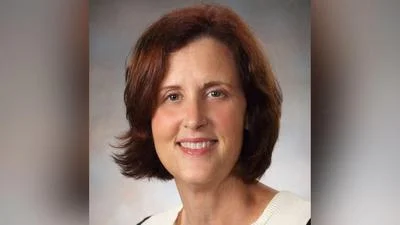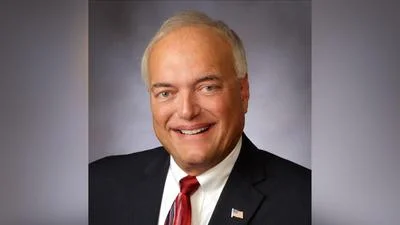The Knox Substance Abuse Action Team (KSAAT) has announced that recent Penn State University graduate Baylee Ruggles has been hired as a program coordinator for the organization, and she is looking forward to her new role to help those struggling with addiction in the Mount Vernon community.
Ruggles will be taking over Tina Cockrell’s position as Cockrell moves to another position involved in Knox Public Health, according to a release.
Ruggles is from Pennsylvania and recently moved to Mount Vernon with her boyfriend and her cat upon receiving the job offer from KSAAT. She knows the area well as she spent time visiting family during the summer months. At Penn State, she focused on human development and family studies, and she said this will help with her new career endeavor.
“My major is very mental health-based,” Ruggles said. “I have always wanted to work with drug-free programs because I believe everyone has a second chance. I also feel it is very important to be a good advocate for those who are struggling with addiction.”
Ruggles said her position allows her to focus not only on drug rehabilitation, but on prevention and education to the youth population of Knox County. She said she can apply her trauma-based knowledge to understand those suffering and attempt to help those in the community.
She said the challenge to addiction recovery comes within the process, as it is not easy to admit when there is a problem. She said facing the problem head on and dealing with a stigma of drug addiction can be difficult. Ruggles said people in recovery have to deal with this stigma, which can be harsh.
“There is an idea that drug addicts are hopeless causes because of their struggles,” Ruggles said. “In reality, people need guidance because they are lost. Many people who treat addicts get the same backlash when it comes to the stigma. Some do not understand why people work in drug rehabilitation. These people work very hard to help addicts recover, despite the idea around drug addiction.”
The COVID-19 pandemic has made drug addiction and recovery even more prevalent. The pandemic has affected everything in life, she said, and that means an increase in mental health issues and drug addiction. The pandemic also led to staff shortages, which have made it difficult to help those in recovery.
“People were left struggling with their mental health and sometimes felt there was no option,” she said.
Ruggles said that a turnaround for drug addicts really depends on the person. She said this could be a father who desperately wants to be there for a child, or someone’s sister who just wants to turn her life around. Another instance could be a near-death experience like an overdose. In the end, every addiction story is different.
“There is no exact way to drug recovery,” Ruggles said. “It all depends on the support, drive and cause of their new life.”







